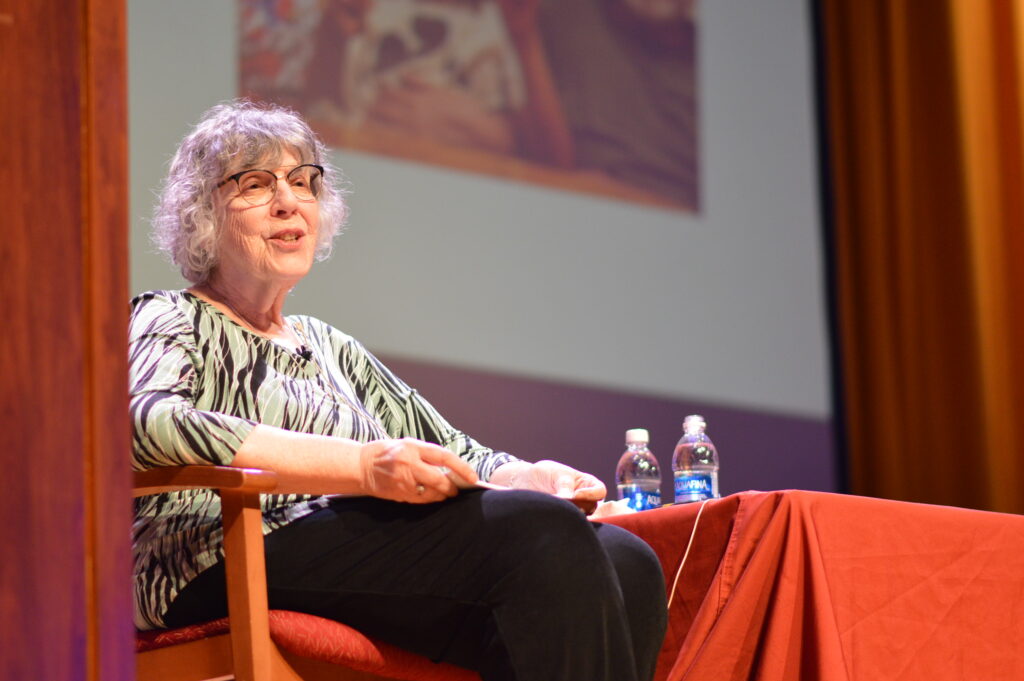
Note: Holocaust survivor Erika Schwartz will also be speaking in Ballantyne Auditorium at Kirkwood Community College in Cedar Rapids, at 1:30 p.m. Tuesday, April 2, 2024.
By Cindy Hadish
CEDAR RAPIDS, Iowa — One of the youngest Holocaust survivors still living told an audience at Coe College she had long been confident that a similar genocide would not repeat itself.
“Up until several months ago, I didn’t think so,” said Erika Schwartz, alluding to the Hamas attack on Israel in October 2023 and ensuing deaths.
Still, Schwartz, who will turn 80 this month, said during her April 1, 2024, presentation that she had seen enough during her lifetime to remain positive for the future.
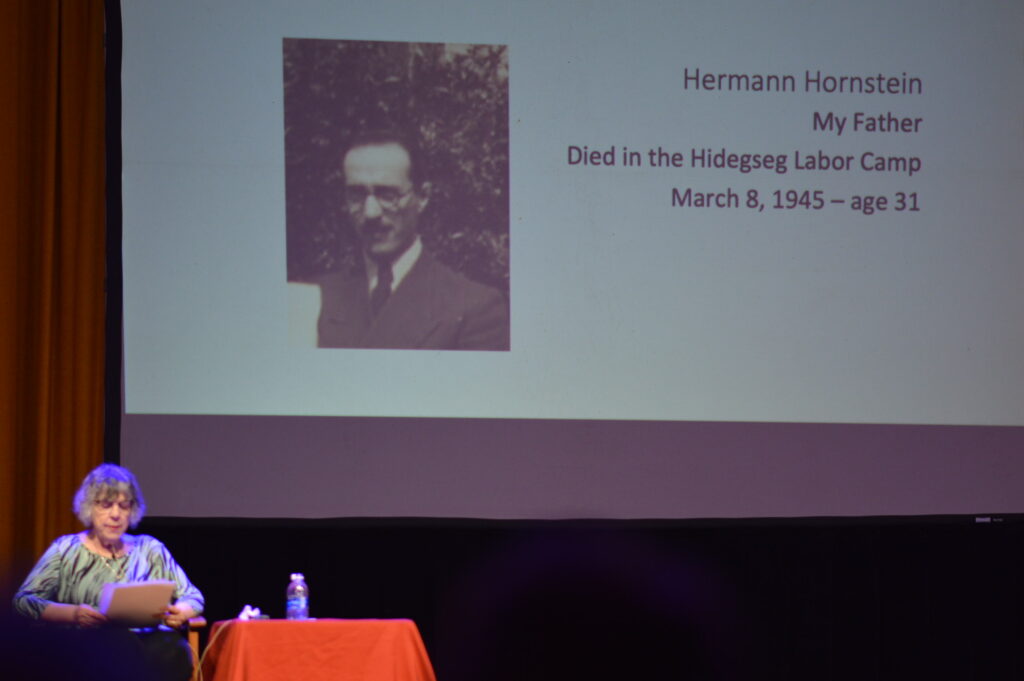
Erika Schwartz speaks as the screen behind her displays a photo of her father, a Holocaust victim. (photo/Cindy Hadish)
“I have every hope that we’re going to be fine,” she told a sparse crowd in Coe’s Sinclair Auditorium, with turnout possibly diminished due to the University of Iowa women’s basketball game in the NCAA Elite Eight happening at the same time.
Born in April 1944 to Jolan and Hermann Holstein in Hungary, Schwartz said her memories from the Holocaust were all through her mother, the only other immediate member of her family to survive.
Hungary passed laws discriminating against Jews in 1938, and by 1944, Germans cordoned off a ghetto in the town of Nyiregyhaza, where most of the family lived, and where more than 11,000 Jews were crowded into just 123 houses.
Her father escaped from a labor camp when he learned about the birth of his daughter, settling Erika and her mother into relative safety in Budapest, where Jolan’s sister, Olga Petrover, was also able to make her way.
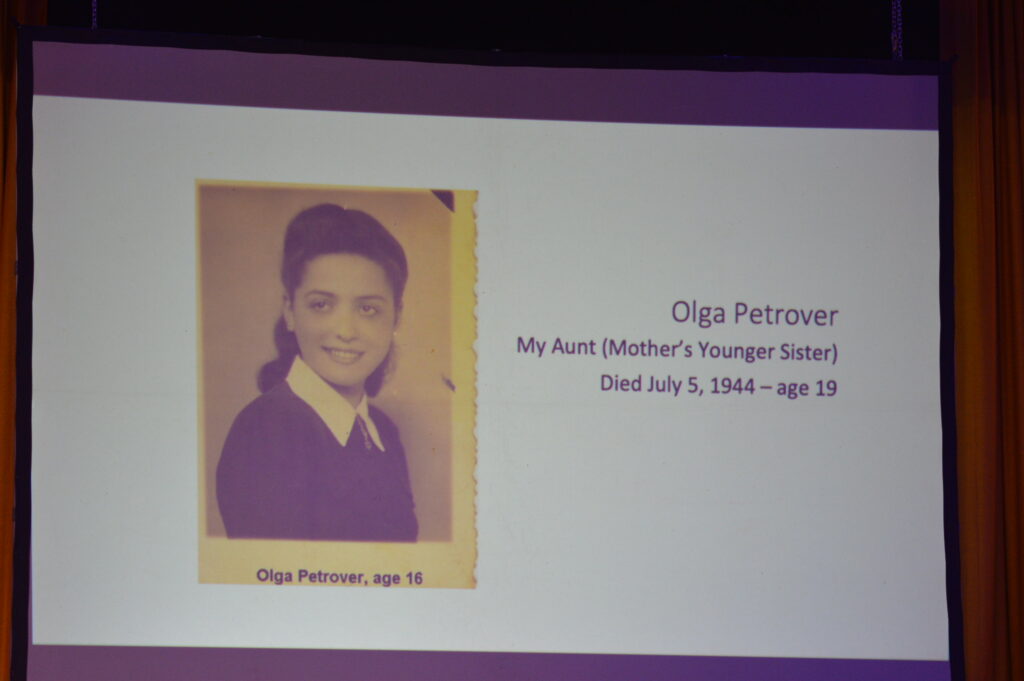
An image of Erika Schwartz’s aunt, Olga Petrover, shown during the memorial service at Coe College.
Schwartz attributes her survival not only to her father, who died in the labor camp at the end of World War II, but to her aunt, who at age 19, made a decision that likely spared Schwartz and her mother from being discovered as Jews.
The two sisters had false documents that showed they were Christians, but a former neighbor recognized Olga as she left the apartment one day to get food to bring home. The neighbor alerted authorities, who chased Olga back into the building.
Rather than return to the apartment where Schwartz and her mother were staying, Olga led the pursuit to the top of the building, then jumped to her death.
The screen behind Schwartz showed images of her relatives, including her father, aunt, and others who perished, including her great-grandmother, grandmother and young cousins, all murdered at Auschwitz.
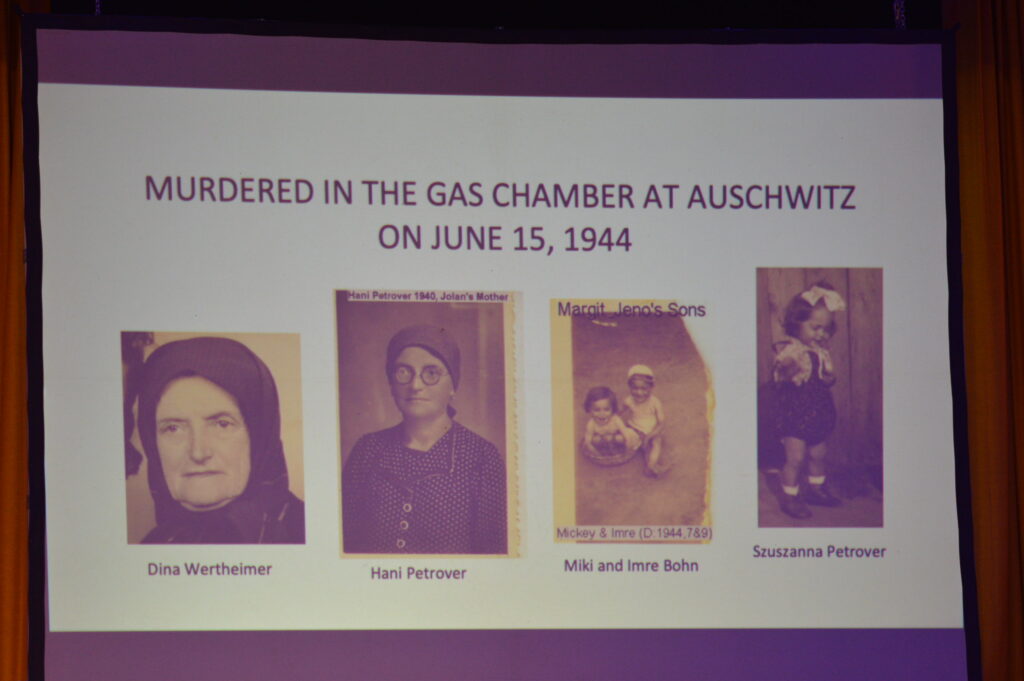
Several of Erika Schwartz’s relatives were murdered in the gas chamber at Auschwitz.
Schwartz and her mother eventually were able to immigrate to the United States, but both were profoundly affected by their experience.
Questions from the audience included one woman who asked what advice Schwartz had for college students who face antisemitism.
Schwartz said when she encounters Holocaust deniers and others who are prejudiced against Jews she doesn’t engage with them, but walks away.
Knowledge of history and facts surrounding the Holocaust, which killed 6 million Jews, is important, she noted, and as one of the survivors, Schwartz is in demand as a speaker.
“I think it’s important for us to speak out,” she added.
Monday night’s event, a service of remembrance for Holocaust victims, called “Lest We Forget,” also included prayers, music and the lighting of candles.
The service was organized by the Thayer Holocaust Remembrance Fund and the Inter-Religious Council of Linn County.
Read more: Auschwitz survivor Tova Friedman speaks at Mount Mercy University and see more photos from the memorial service at Coe College:
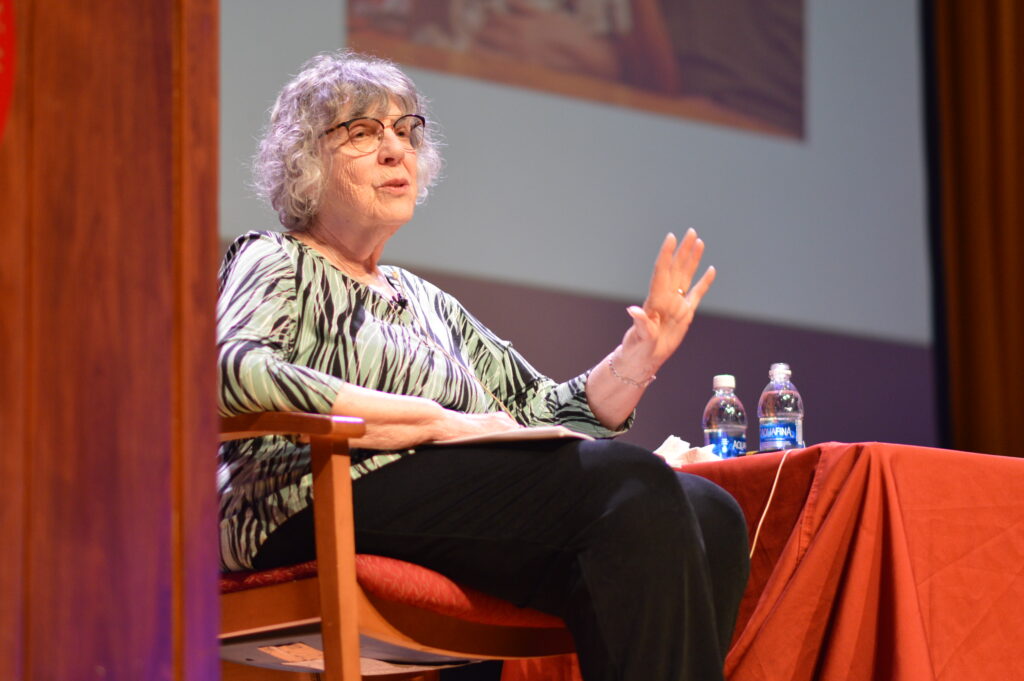
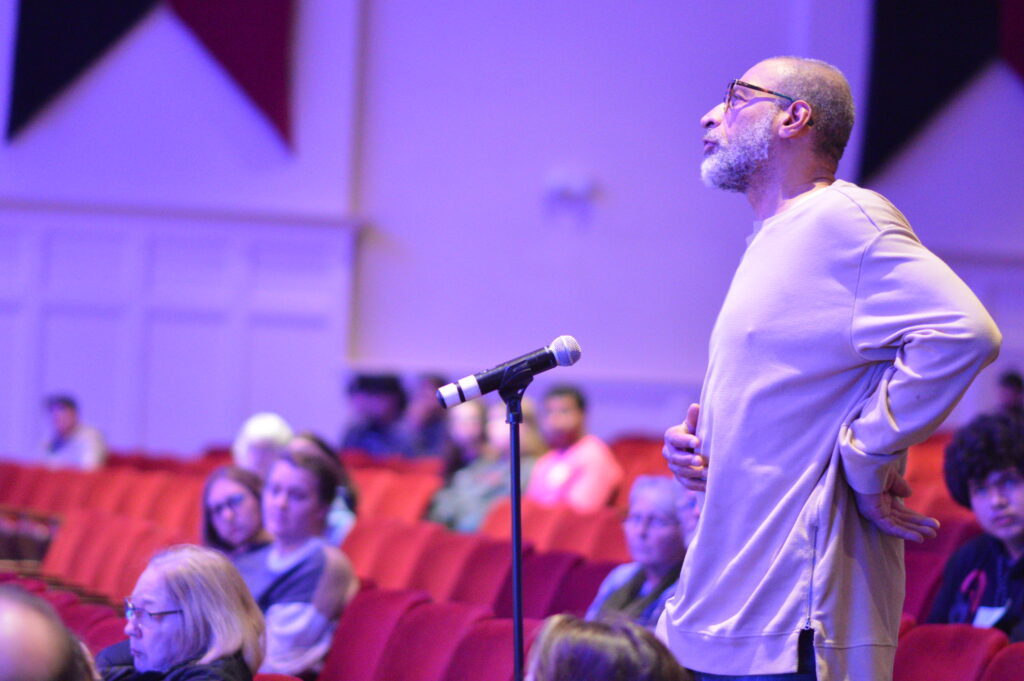
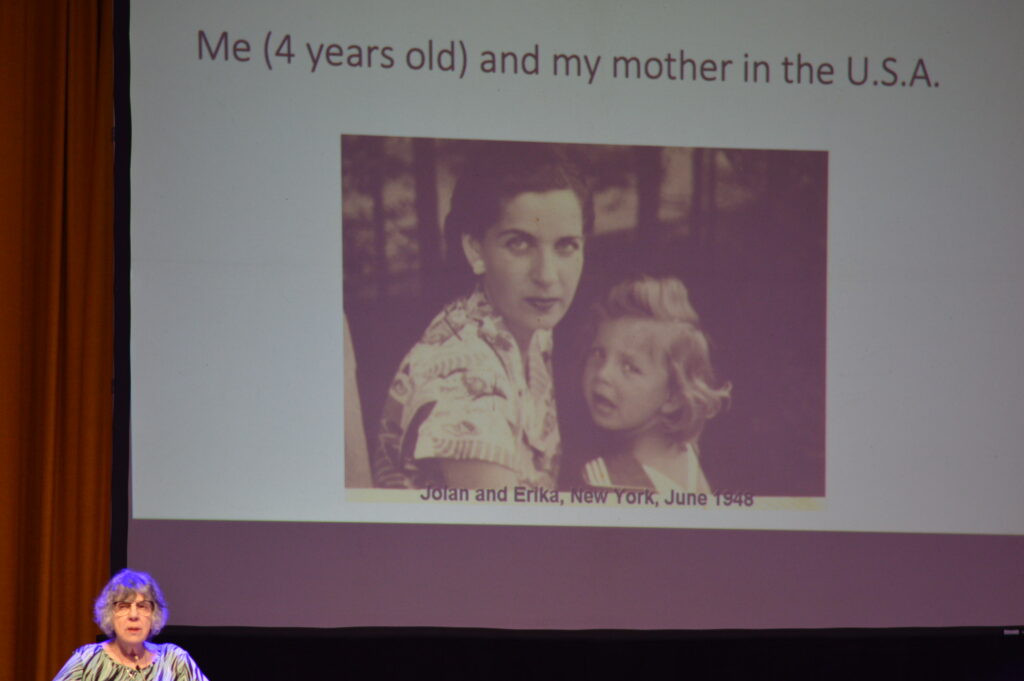
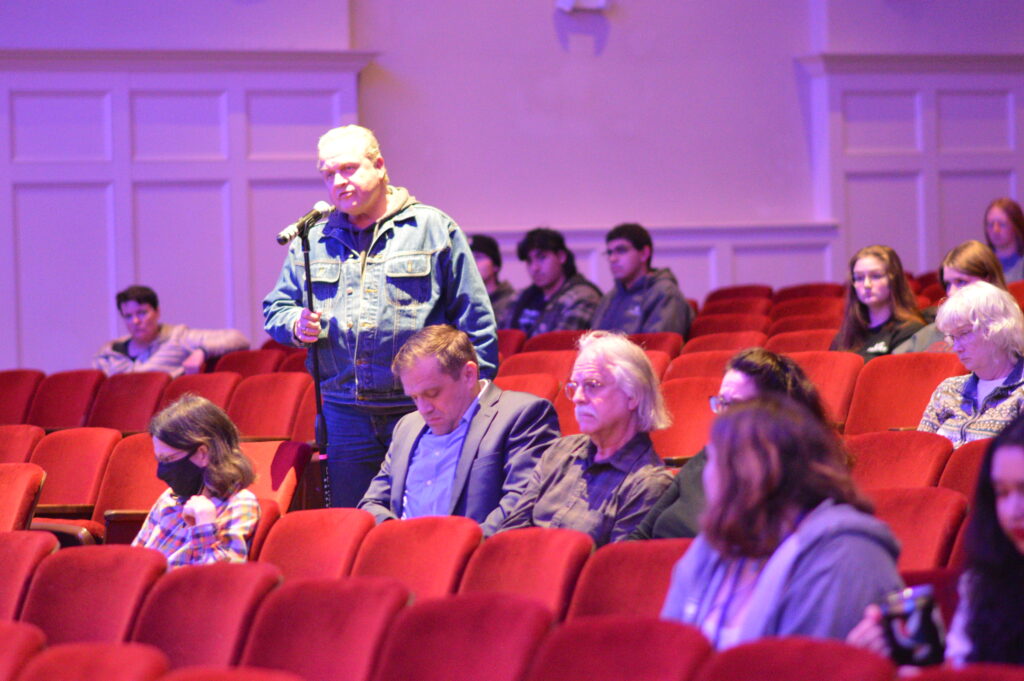
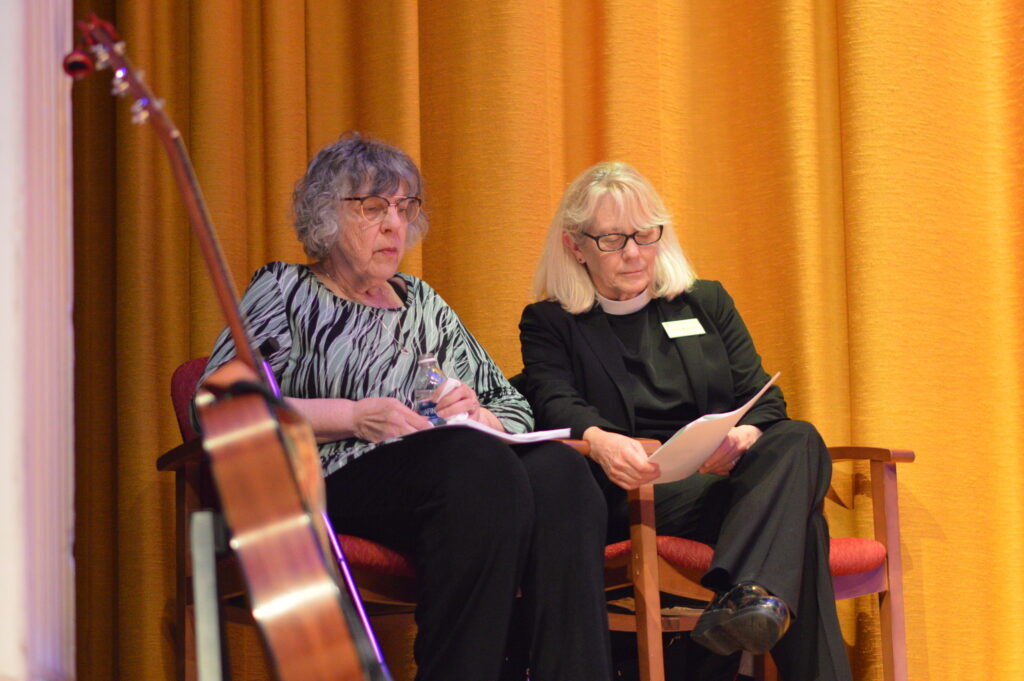
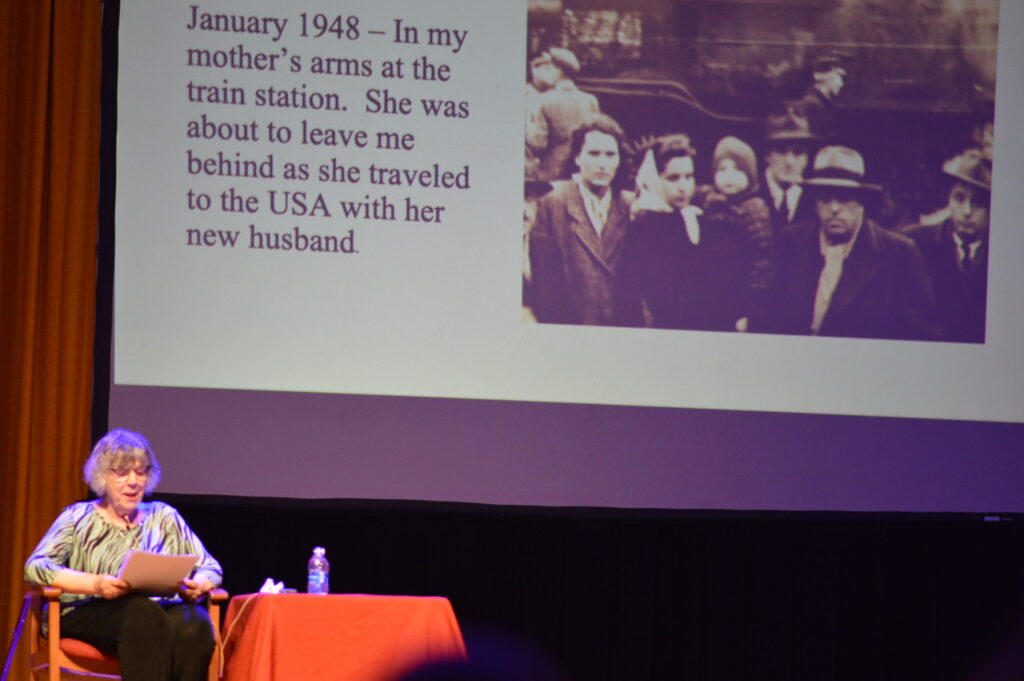
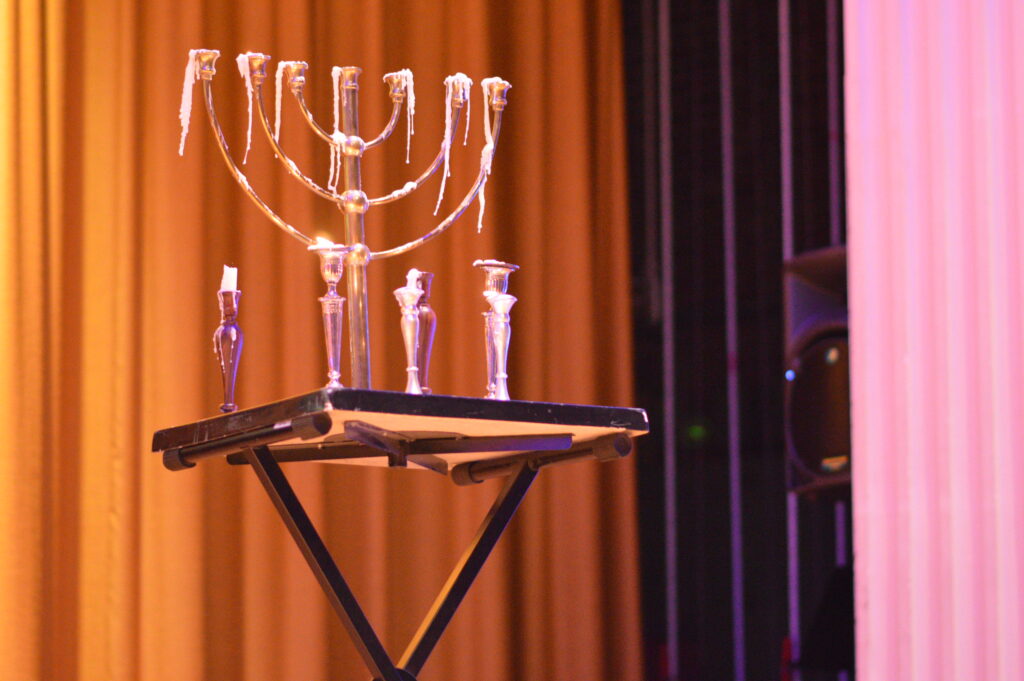

[…] Story continues […]
[…] Story continues […]
[…] Story continues […]
Apparently, her comments about the genocide by Israelis in Gaza were not reported, or perhaps not mentioned. Did she only express that the Hamas attack on 10/7 was a “genocide?” Did she comment on the 75 yr Israeli occupation of Palestine, or the land theft that underlies the illegal Israeli settlements in the West Bank? How about the wall? Or the checkpoints through which Palestinians are herded like cattle? So little time. So much to cover. Doubtless critical matters get left out.
Actually, she didn’t directly cite what happened, other than to reference what happened “several months ago,” so it was left to the audience to interpret what she was referring to.
[…] Story continues […]